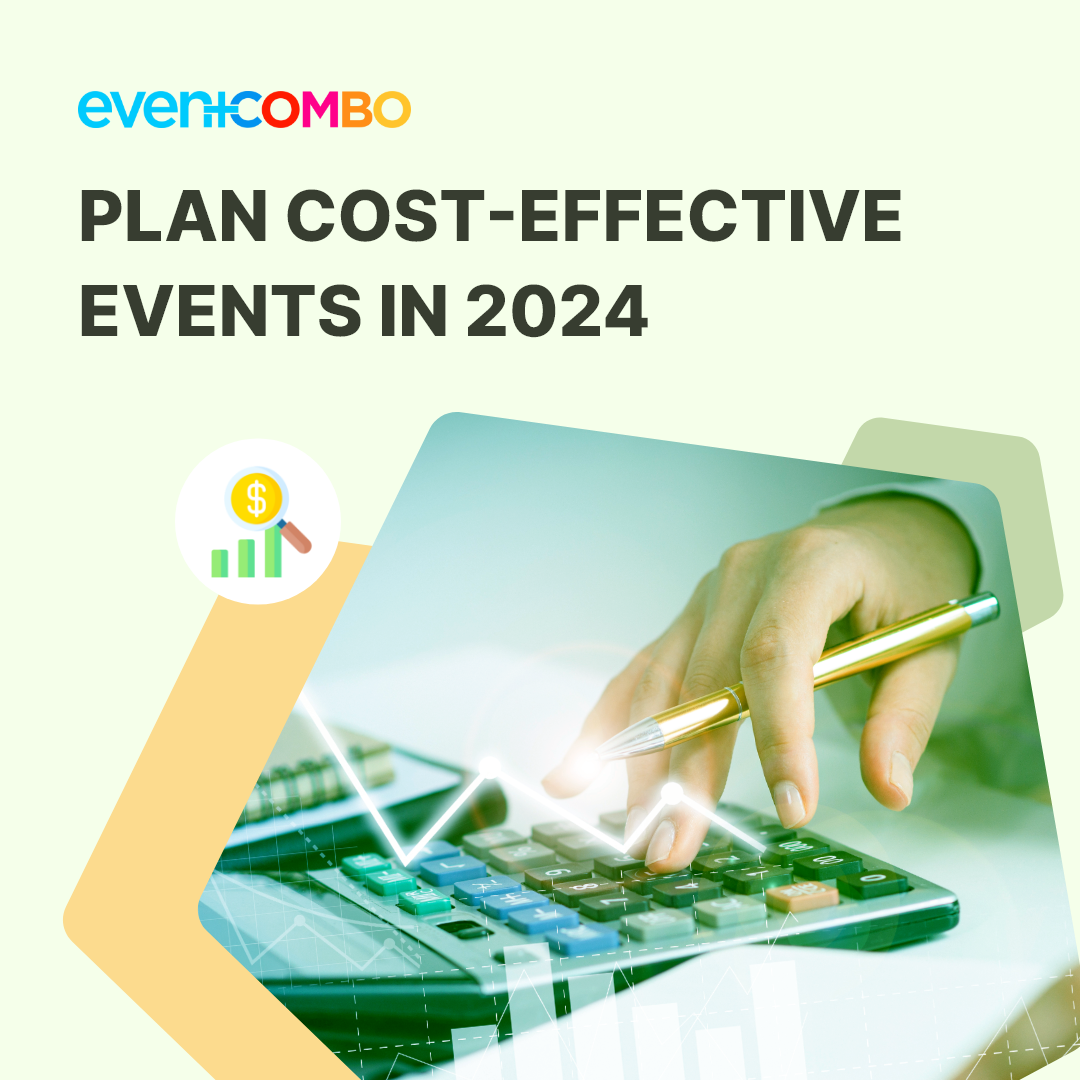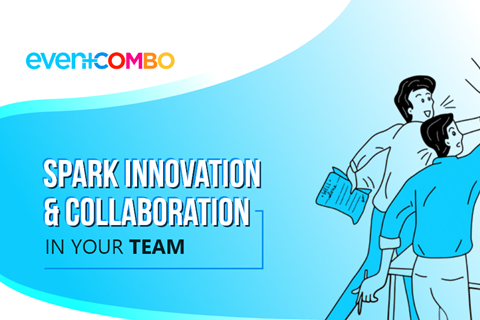Top 9 Strategies for Event Budget Efficiency in 2024

Oct 19, 2023 Shruti Shah
As we step into the final quarter of the year, the time has come to start planning for the upcoming year. While some may be busy jotting down their New Year's resolutions, it's never too early to analyze what the events landscape will look like in the coming year. The events industry, known for its dynamism and creativity, demands uniqueness and customization as your key allies for staying ahead in the game.
With rising attendee expectations and event planners striving to match those expectations, efficiently managing expenses has become more critical than ever, whether you're orchestrating a high-profile corporate conference or an engaging trade show. In the year 2024, numerous opportunities await every member of the event community.
If you’re thinking of harnessing innovation and mastering the art of budget management without compromising event quality, these 9 event financial management tips for 2024 will help you navigate the complex financial terrain of event planning.
- Strategic Budgeting: Escalating costs can cast shadows of doubt over your event flow. It's imperative to establish a well-defined and practical budget that meticulously covers expenses, from venue and catering to marketing and decor. This prudent financial foresight and adhering to event budget allocation best practiceswill shield you from impulsive planning and expenditures that could disrupt your financial equilibrium.
- Venue Selection: Choosing the right venue is often the linchpin of your event's success. Event technology is advancing more and more, becoming a trusted ally in discovering venues that align with your financial plan while offering essential amenities for a memorable event. Choose AI-powered event tech to explore, compare, and handpick venues based on location, capacity, and cost, with visual venue tours and 3D models making the venue selection process more efficient and cost-effective.
- Efficiency Through Event Management Software: The days of piecing together different event management software are behind us. In the coming year, it's all about investing in state-of-the-art event management software, which simplifies the chaos of event planning (with customized tiered pricing). The right event management platform streamlines attendee registration, communication, and provides valuable analytical insights, allowing planners to focus on tasks requiring their unique human skills, such as attendee engagement and the finer details of event management.
- Vendor Negotiations: While technology has made the process of negotiations, tracking, and comparing RFPs more accessible, to ensure that you secure the most advantageous deals for services like catering, AV equipment, and other event essentials, it hasn't replaced the timeless practice of vendor negotiations. Whether you're a small or large event organizer, negotiating with the right mix of determination and savvy is essential and results in favorable terms, especially when the promise of repeat business is on the table. One valuable tip is to establish vendor relationships early; vendors tend to be more generous with discounts when agreements are made well in advance. Last-minute pricing, on the other hand, can often surge and lead to unexpected expenses.
- Digital Marketing: The conventional alchemy of traditional marketing methods can be expensive and often yields unpredictable results. Digital marketing has now taken a more prominent role as a cost-effective alternative that enables you to reach a wider audience and keep them engaged throughout the event lifecycle without draining your budget. With seamless integrations with social media, live streaming, and email marketing automation, digital marketing has become a prominent option for event marketers to connect with their target demographic. It offers a cost-effective way to explore marketing frontiers like influencer marketing and affiliate marketing, extending your reach and bringing forth better sponsorship opportunities.
- Embrace Sustainability: The world's growing eco-consciousness has introduced a new dimension to cost-saving in the event industry. Embracing event technology to embark on a paperless journey and utilizing digital invitations, event apps, and streamlined check-in systems can significantly reduce printing and postage expenses. Simultaneously, bid farewell to the piles of agendas, schedules, session details, tickets, and coupons that once heavily relied on paper and printing. This shift not only reduces post-event waste but also eases headaches for organizers and attendees who would otherwise shuffle through heaps of paper during the event.
- Streamlined Registration and Ticketing: Inadequate ticketing solutions can negatively impact your event, resulting in lower registrations, disgruntled attendees, and an overall poor event experience. For a seamless event, you need ticketing and registration software that not only collect the right data but also engage attendees from the moment they land on the page. So, harness the capabilities of event tech platforms to simplify the often-intricate processes of registration and ticketing. This will not only reduce labor costs and minimize errors but also enhance the overall experience for your attendees. Additionally, integrated payment processing doesn't just ensure a smooth flow of funds; it also manages refunds, discounts, and facilitates layaway ticket options promptly. With a single platform that, along with other features, provides insightful analytics and seamlessly integrates with your CRM, imagine the costs you'd save and, of course, the hassle.
- Optimizing Staffing: Placing the Right Team in the Right Roles: Customize your staffing strategy to match the size and complexity of your event. Embrace the efficiencies provided by event technology to allocate tasks thoughtfully, potentially reducing the need for on-site personnel. Staffing is a substantial cost factor in events, and with the advent of automation for tasks like ticketing, check-in processes, and venue mapping on event apps, you can significantly reduce the need to hire external agencies. This not only results in substantial cost savings but also allows you to allocate your human resources where they matter most – engaging the audience, enhancing security, swiftly addressing event tech glitches, and proactively managing risks. This staffing optimization is particularly relevant as we look ahead to maximizing event ROI in 2024, where event technology plays a pivotal role in driving operational efficiency and cost savings.
- The Post-Event Analysis: Event expense management will become a concurrent process. You cannot wait for the next event budget cycle to manage costs. After the curtain falls on your event, it is imperative to conduct an in-depth self-audit based on analytics. Event technology can offer valuable insights into attendee feedback and event performance. Identify where you exceeded or missed the budget and why, and where you can reallocate resources for more value.
As we progress towards another promising year, the anticipation is electrifying, and the energy is palpable. There are abundant opportunities for saving costs, thanks to event technology and smart planning. By being mindful of your budget, adopting digital solutions, and streamlining your event management, you can create exceptional events while staying financially responsible. In a time when every dollar matters, these strategies will guide you towards financial expertise in the field of event planning. It's time to make sure events are not only outstanding but also financially sound.
For personalized advice and more insights, get in touch with our event planning experts - https://bit.ly/3R9bkuP
close








